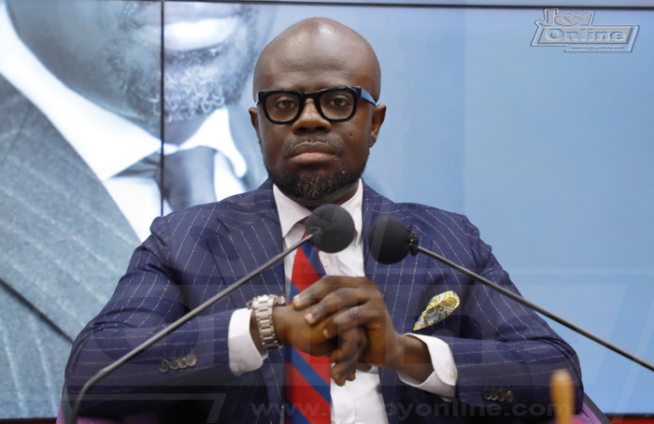The Dean of the School of Law at the University of Professional Studies, Accra (UPSA) says while calls for a constitutional amendment have often targeted the appointment procedure of heads of key independent state bodies, there have been no solutions proffered to remedy the situation.
Professor Ernest Kofi Abotsi said these calls for a constitutional amendment, particularly those targeting the appointment procedures, have largely been fueled by a persistent perception that the appointing authority i.e. the President, exercises some degree of control over his appointees.
This perception, he said, is particularly heightened when discussing judicial appointments by the President.
“But in the case of the judiciary that is difficult to push all the time because there have been cases where governments have lost cases under Chief Justices that were appointed by government involved, and so that may tempt to refute the allegation that that whoever appoints the Chief Justice of the judiciary controls it.

“From a lawyer’s standpoint, lawyers typically tell you that is not the case because there is a professional understanding of the fact that whoever appoints a judge doesn’t necessarily have control over the judge and the same extends to the chief justice who is the administrative head,” he explained on Joy FM’s Super Morning Show, November 1.
According to the Professor, it is erroneous to suggest that because the President has appointed someone that person is necessarily beholden to him.
He said while the case is not so, the perception fueled by Ghana’s patrimonial politics has remained persistent and ought to be addressed.
Moving on, he suggested that those calling for constitutional amendments should then proffer suitable alternatives to remedy the situation.
“The question is if the president doesn’t appoint the justices of the court for example, if the president doesn’t appoint members of the judicial council, who should? I think that the central question has not been satisfactorily answered. The problem has been identified, but the solution is not so much.
“Who should appoint judges? Should it be left to parliament? But if parliament is left to appoint judges, parliament of its own cannot go about looking for who to appoint. There must be proposers; there must be somebody who starts the process.
“And even if parliament appoints them who completes the appointment process, I mean who signs off? Is it going to be the speaker? Some of these things are easy to attack in terms of the problems they have posed over the years, but the solutions are not so much.
“And that’s why I argue that the solution may not just be changing or tweaking the constitution. The solution may be us trying to understand and identify why it is that when particular persons make appointments such as the president there are perceptions that there are remote controls over the years.
“Because the problem lies in the perception which unfortunately is fed by certain realities and those realities may create the impression that it is indeed true that whoever appoints actually controls.
"Even that truth, if at all, may exist only to a degree and may actually have been exaggerated by reason of the perceptions that have fed that and of which much has not been done to correct,” he said.
Latest Stories
-
Gisèle Pelicot given France’s highest award
23 minutes -
French prisoner escapes in fellow inmate’s bag, officials say
34 minutes -
Disappointment as Drake’s final Wireless show ends after 40 minutes
45 minutes -
EU delays retaliatory trade tariffs against US
56 minutes -
EU flags Algeria and others as high-risk in new money laundering watchlist update
1 hour -
SA police minister suspended over organised crime allegations
1 hour -
Trump will be hosted by King at Windsor during second state visit
2 hours -
WAFCON 2024: ‘We have destiny in our hands’ – Black Queens boss Bjorkegren
4 hours -
CIHRM Ghana confers chartered status on 28 members, 170 associates
6 hours -
Government gross financing needs to remain elevated; debt service obligations are large – IMF warns
6 hours -
Deloitte appoints George Ankomah as Deputy Chair of Africa Board
7 hours -
Palmer inspires Chelsea to victory over PSG to claim Club World Cup
7 hours -
Kwame Dadzie: Bash King Paluta but don’t crush him
7 hours -
T-bills auction: Government fails to meet target again; interest rates go up
7 hours -
Beyond Publications and Prestige: Ghana scholarly society charts the path for research that drives real development
8 hours

